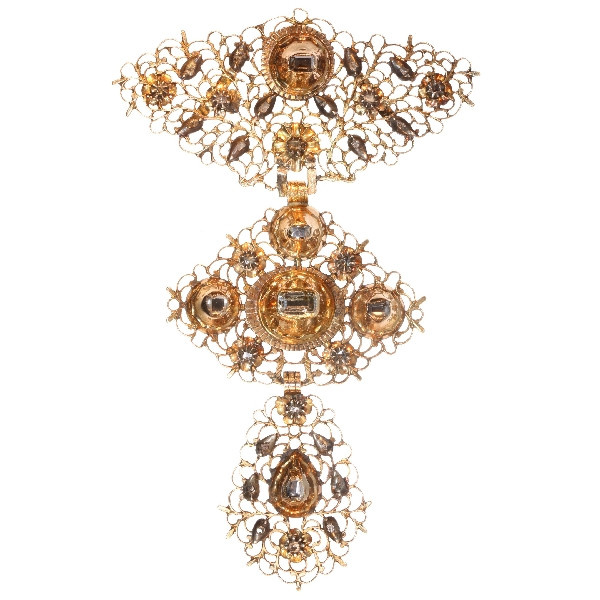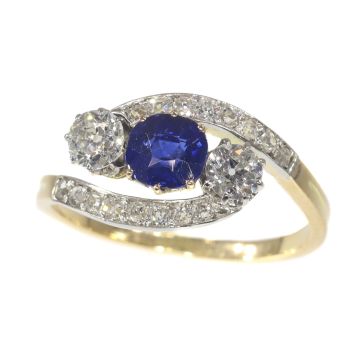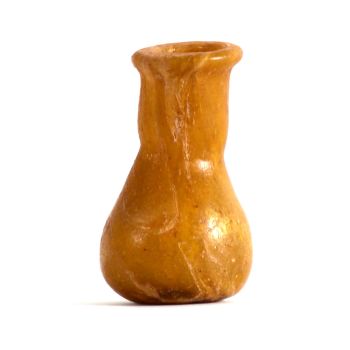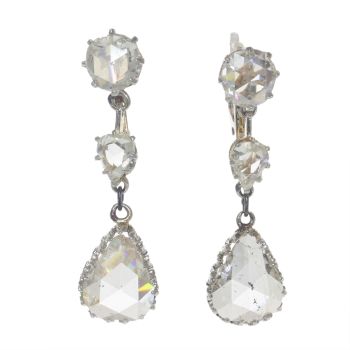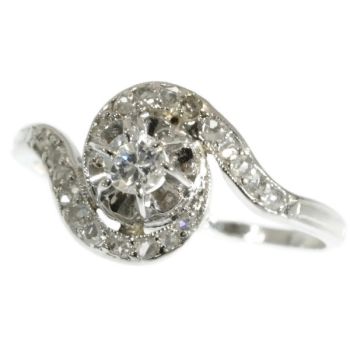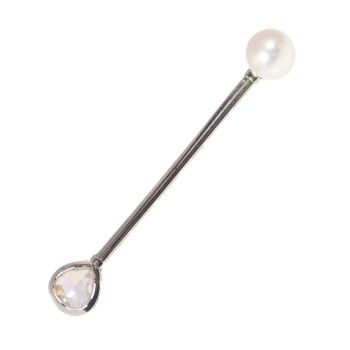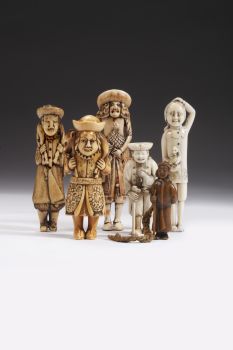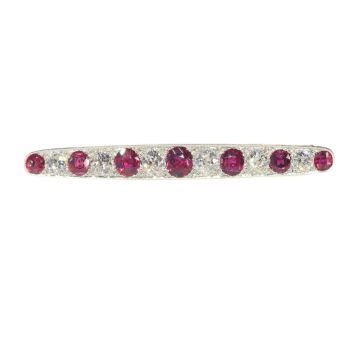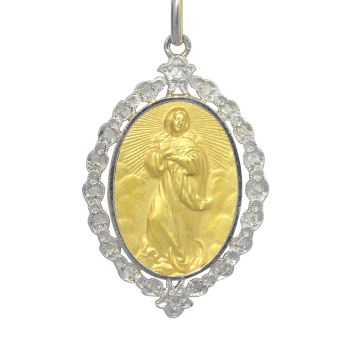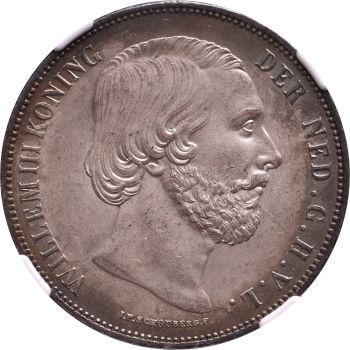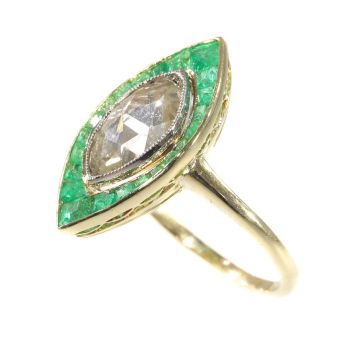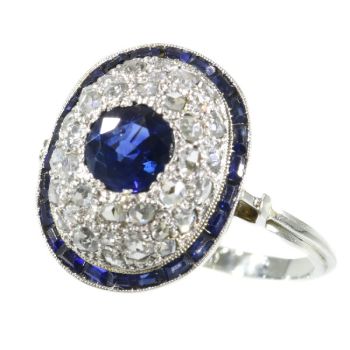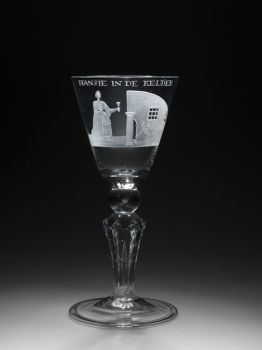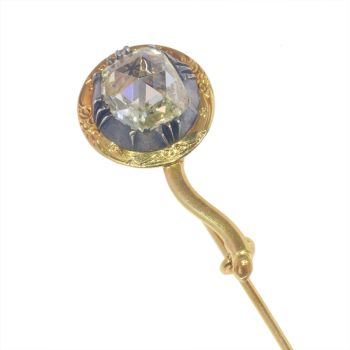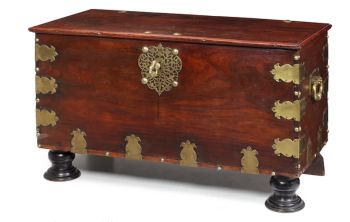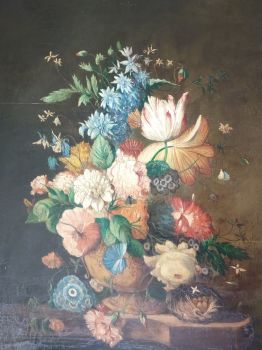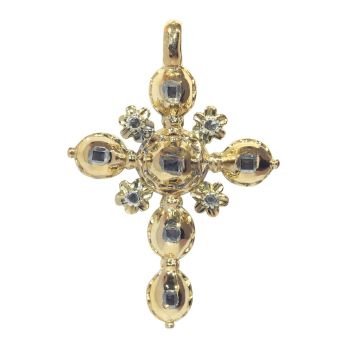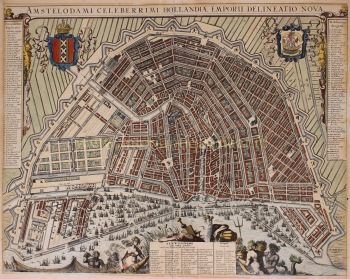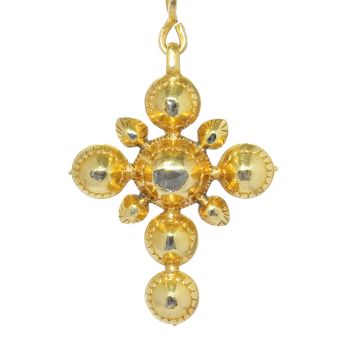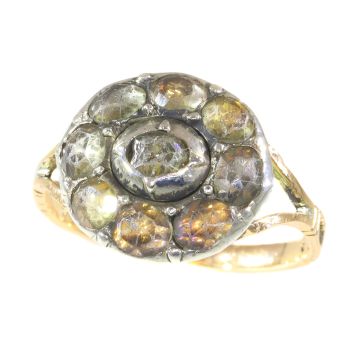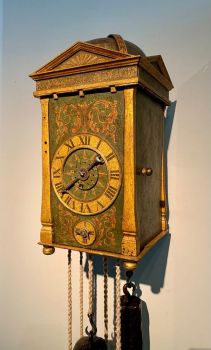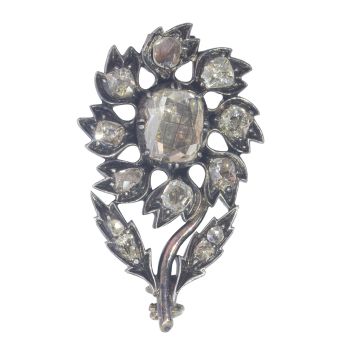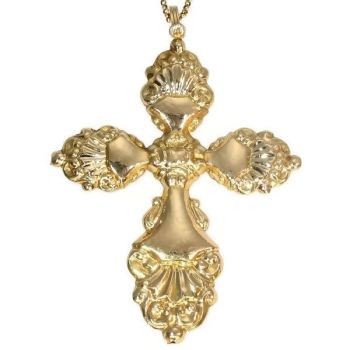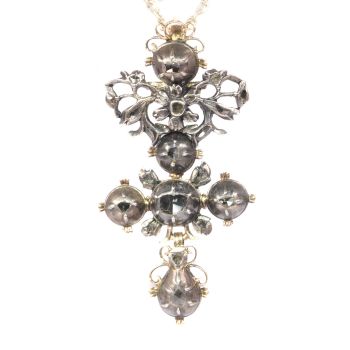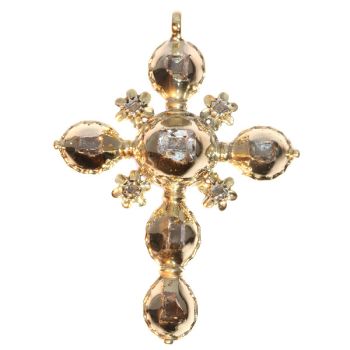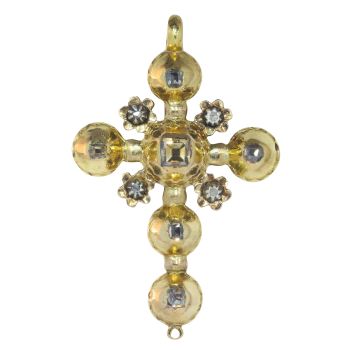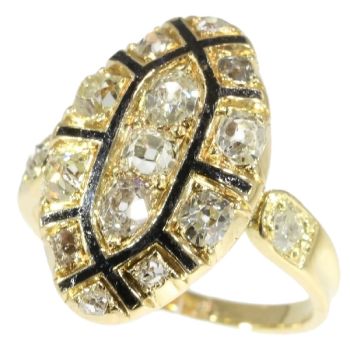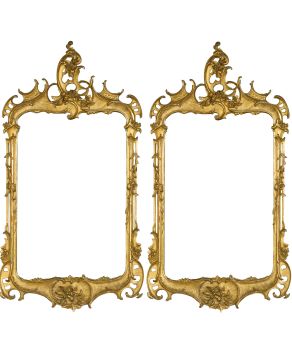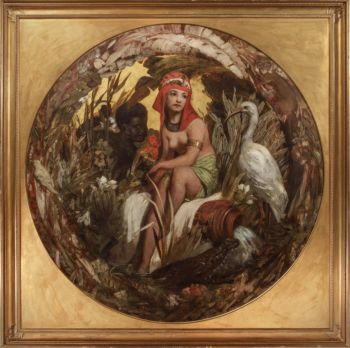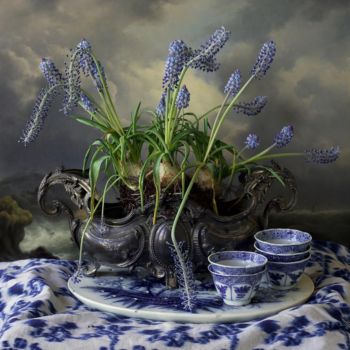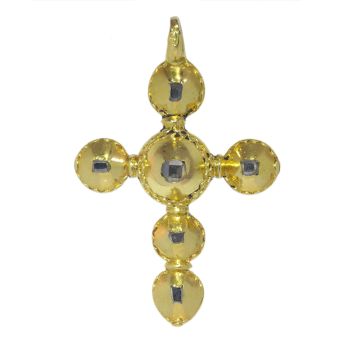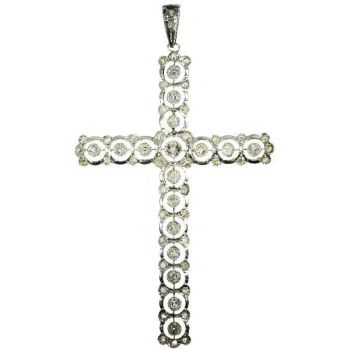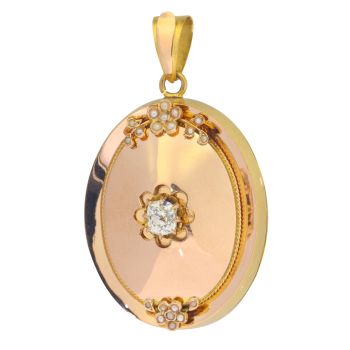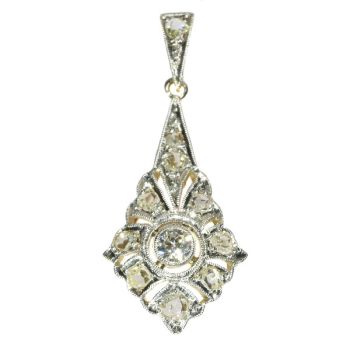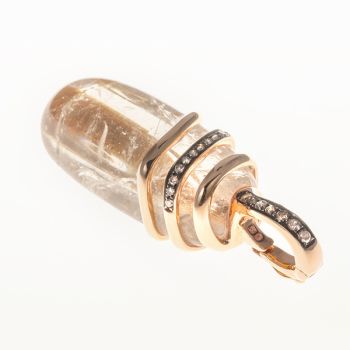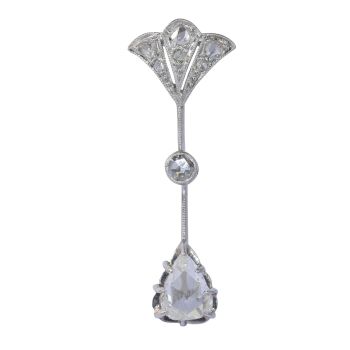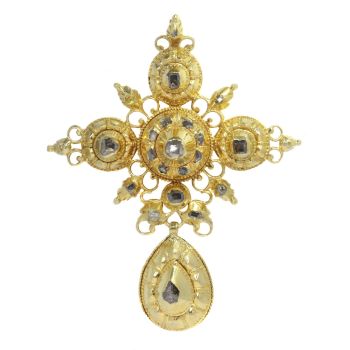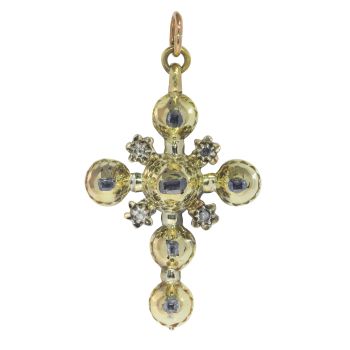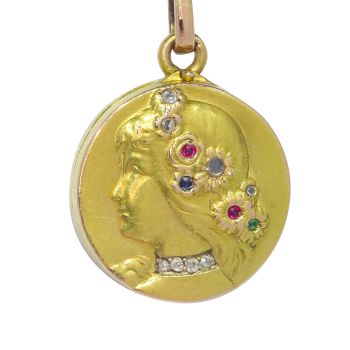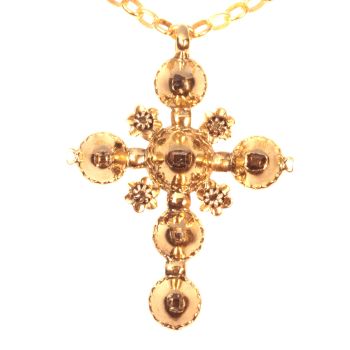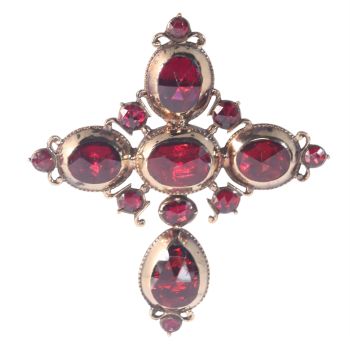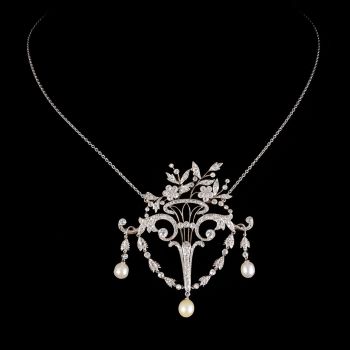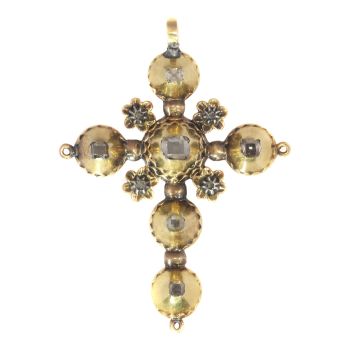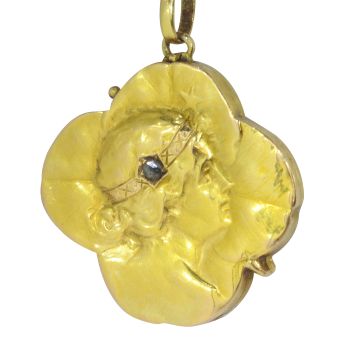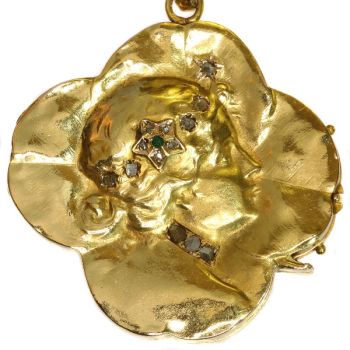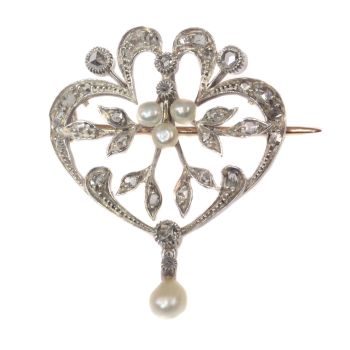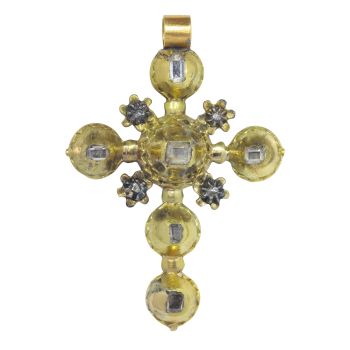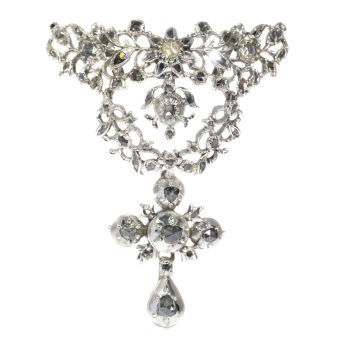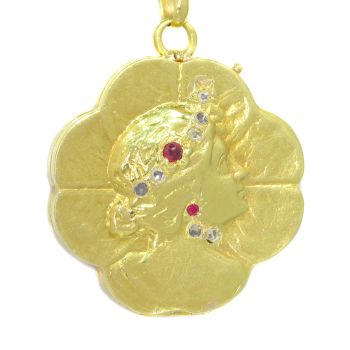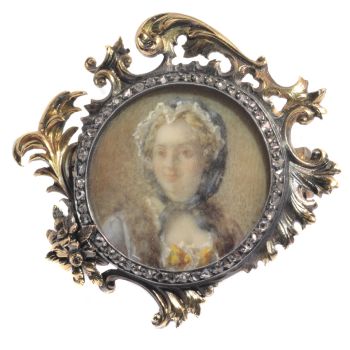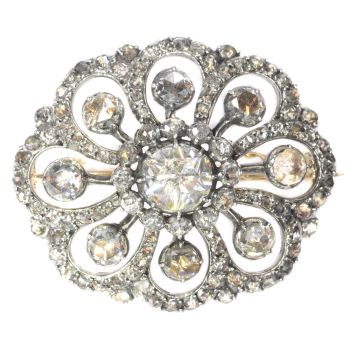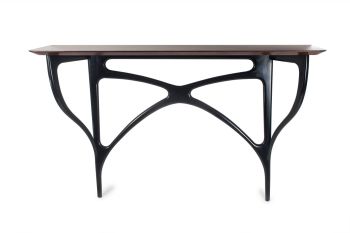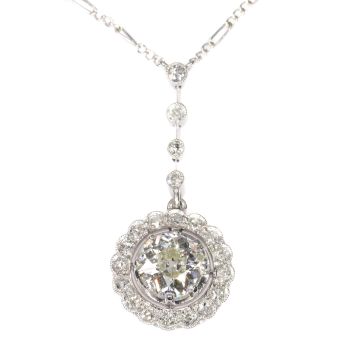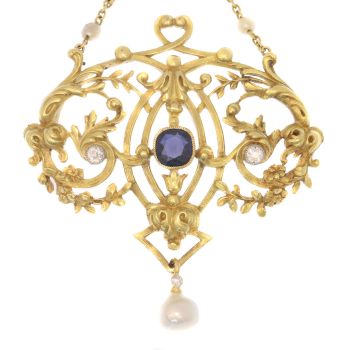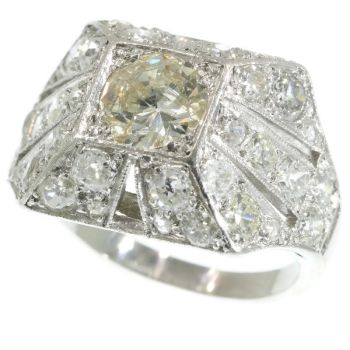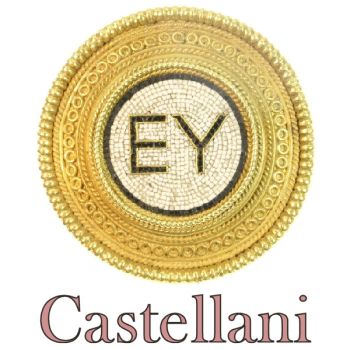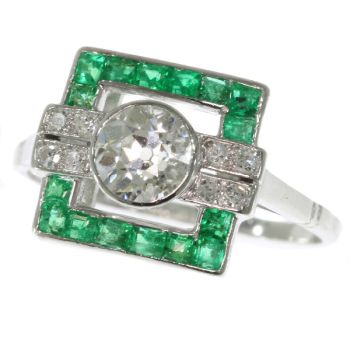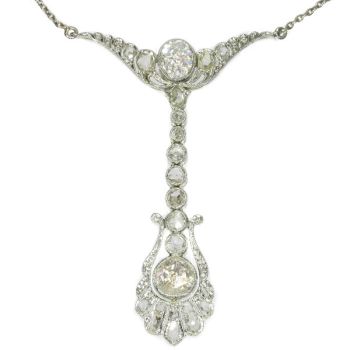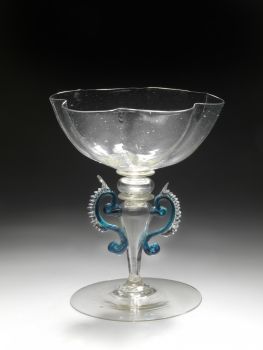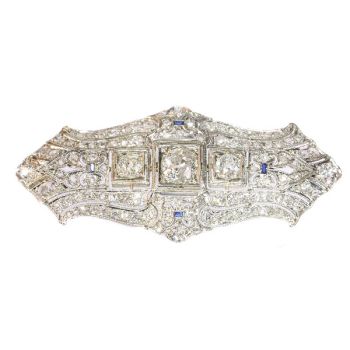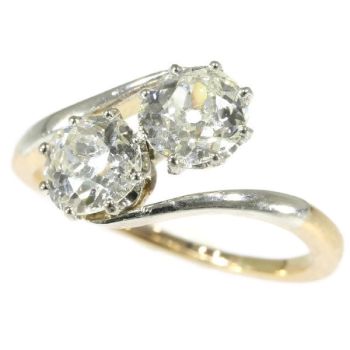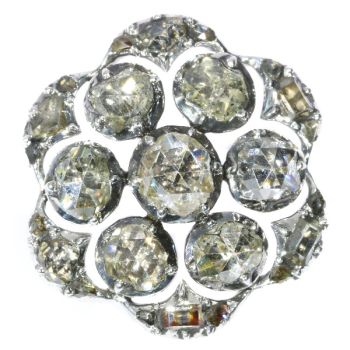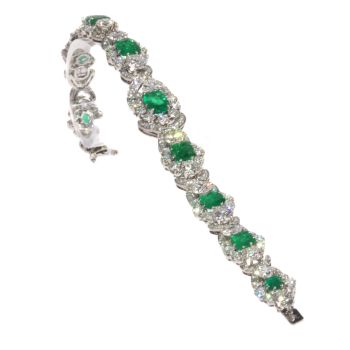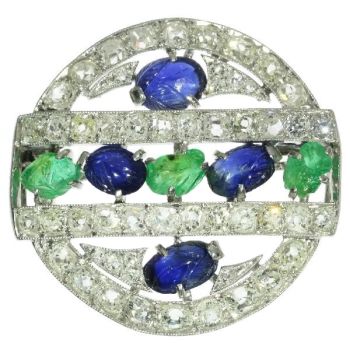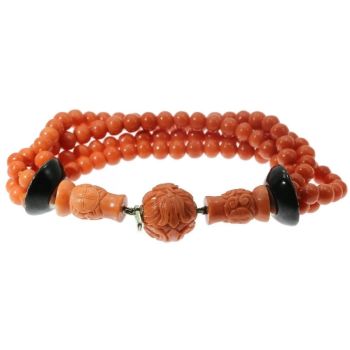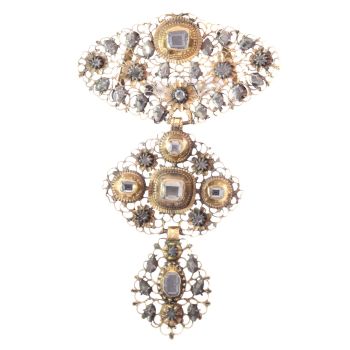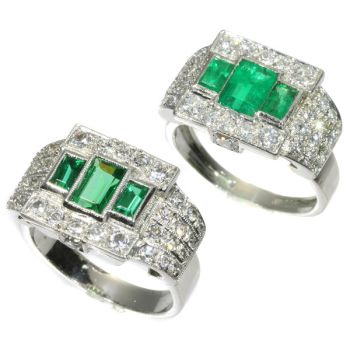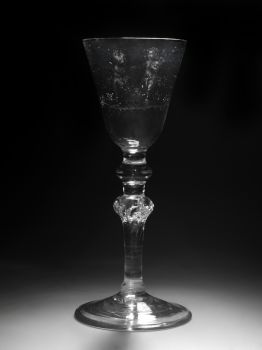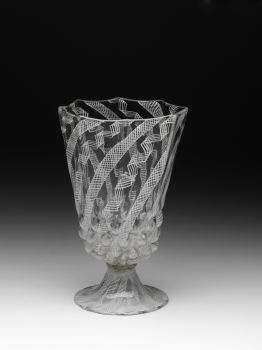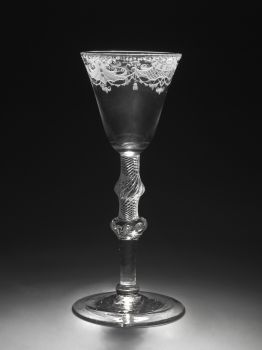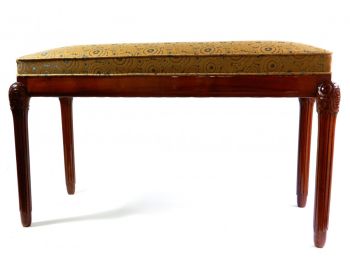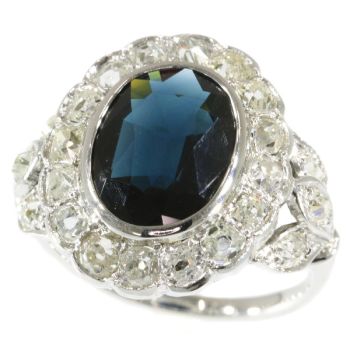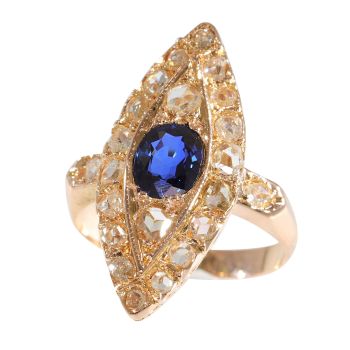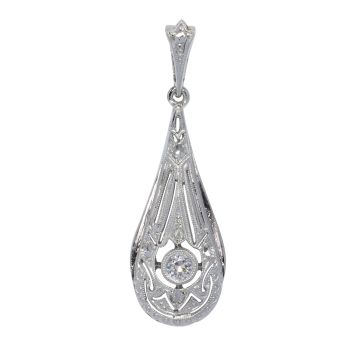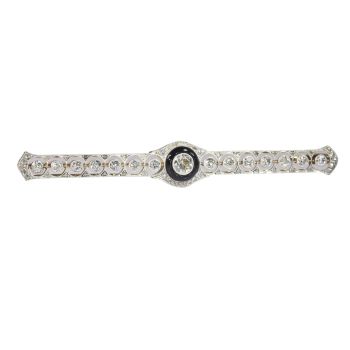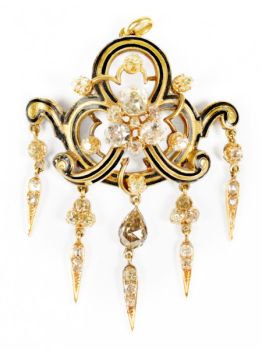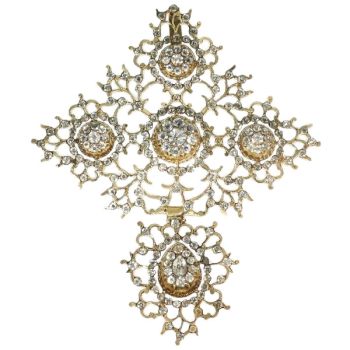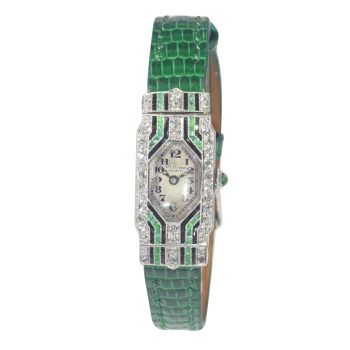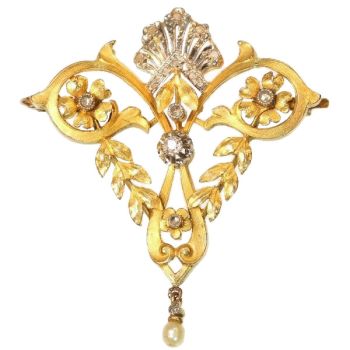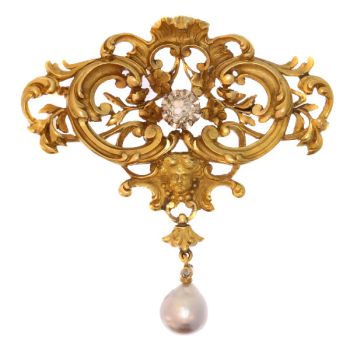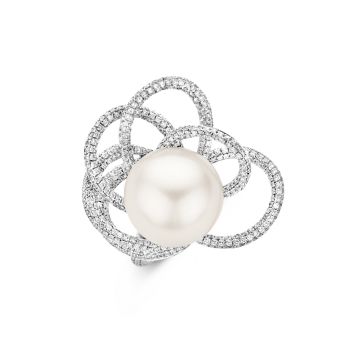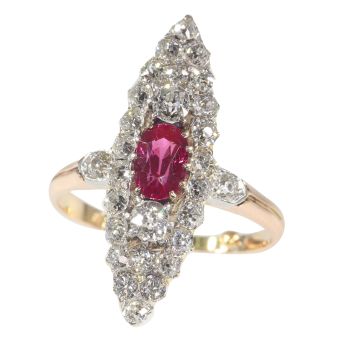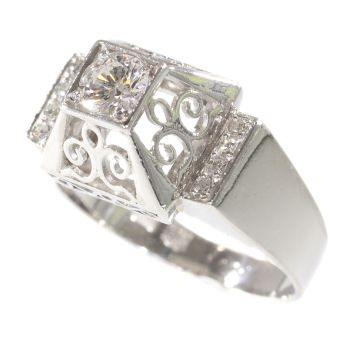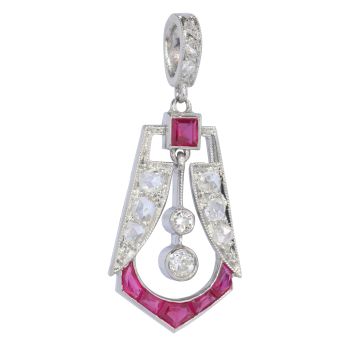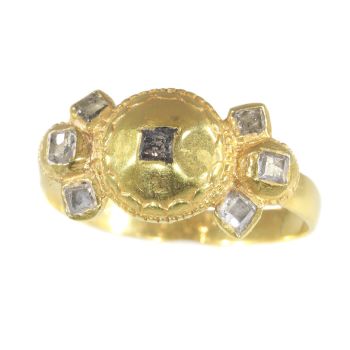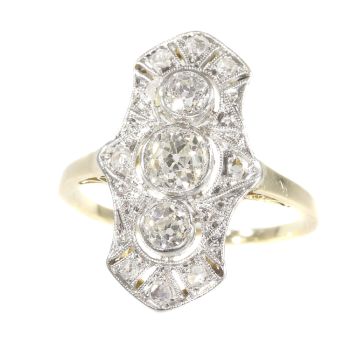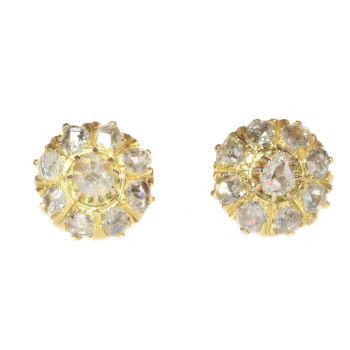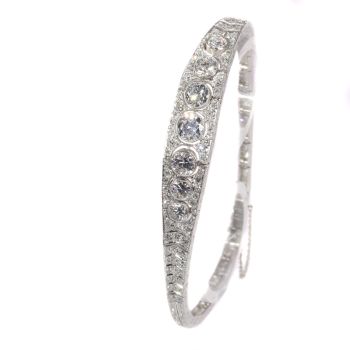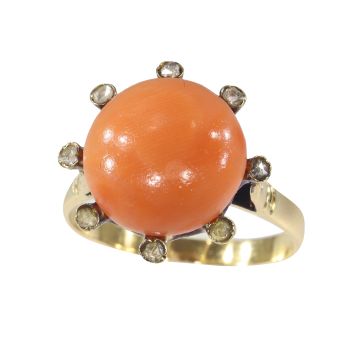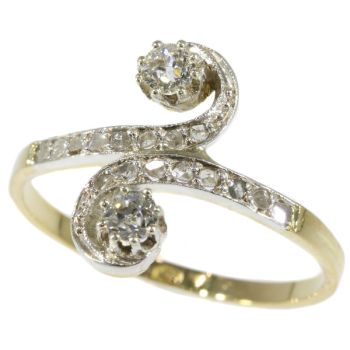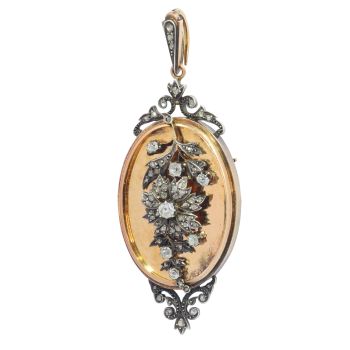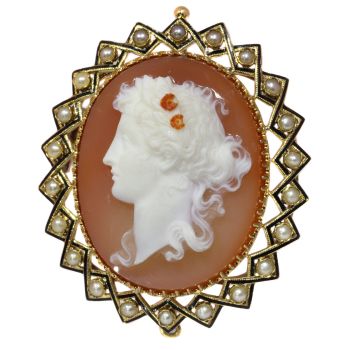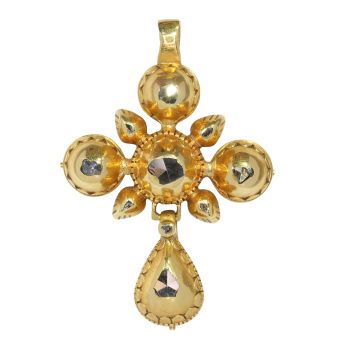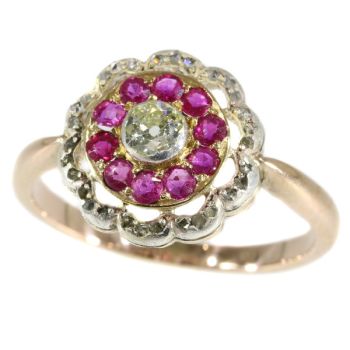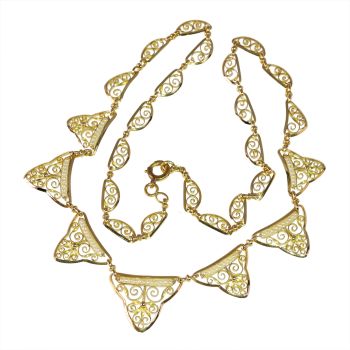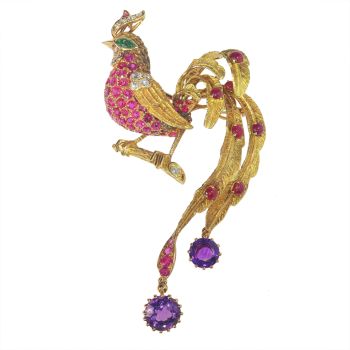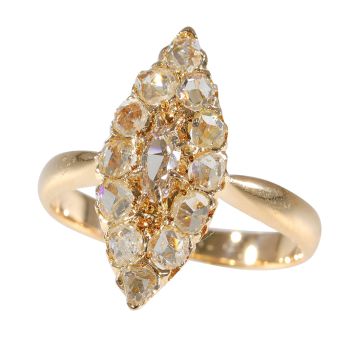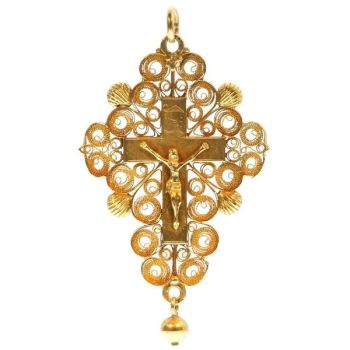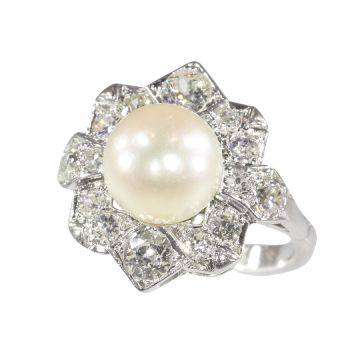Pingente de cruz de ouro filigrana do século 18 chamado A la Jeanette, diamantes de lapidação 1750
Artista Desconocido
Diamanteoro rojoOroPiedra preciosa
€ 7.250
Adin Fine Antique Jewellery
- Sobre la obra de arte
Antique jewelry object group: pendant
Condition: very good condition
- (more info on our condition scale)
Country of origin:Although it does not carry any legible control marks we believe this to be of Belgian origin.
Style: Rococo - Rococo (less commonly roccoco) also referred to as "Late Baroque" is an 18th century style which developed as Baroque artists gave up their symmetry and became increasingly more ornate, florid, and playful. Rococo rooms were designed as totalworks of art with elegant and ornate furniture, small sculptures, ornamental mirrors, and tapestry complementing architecture, reliefs, and wall paintings. It was largely supplanted by the Neoclassic style. In 1835 the Dictionary of the French Academystated that the word Rococo "usually covers the kind of ornament, style and design associated with Louis XV's reign and the beginning of that of Louis XVI". It includes therefore, all types of art produced around the middle of the 18th century inFrance.
- See also: Rococoor more info on styles
Style specifics: Rococo is a style of decoration that followed, c.1730, the baroque style in France (where it was also called rocaille), the principal features of which are asymmetry of ornament and a repertoire consisting to a considerable extent of rockwork, shells,flowers, foliage, and scrollwork. It was developed in France under Louis XV, 1715-74, and spread to Italy, Germany, and Austria and to a lesser extent to England.
Period: ca. 1750
- (events & facts of this era, poetry of this era, fashion of this era)
Source of inspiration: Christianity
Theme: Cross - The cross is one of the most ancient human symbols, and is used by many religions, such as Christianity. It is frequently a representation of the division of the world into four elements (or cardinal points), or alternately as the union of theconcepts of divinity, the vertical line, and the world, the horizontal line. (from: Wikipedia)
Material: 18k red gold and silver, see also: The silver on gold technique
- (more info on precious metals)
Technique: The rose cuts are set on foil. This is a special technique that was used to bring the lustre of the diamonds to its best quality.
Extra information: This type of pendant is typically Belgian in the late 18th till mid-19th century. They are called 'à la Jeannette'. A croix à la Jeanette (French for: "cross in the style of Jeanette") is a pendant in the form of a heart with a latin cross dangling from it
Diamond(s): Six table cut rose cut diamonds. We do not have the weight of the diamonds which is normal in our trade when it comes to rose cuts.
27 senailles. A senaille is a simplified rose cut diamond, a small diamond chip with perhaps a few polished facets. We do not have the weight of these diamonds which is normal in our trade when it comes to senailles.
Birthstones: Diamond is the birthstone (or month stone) for April.
- (more info on birthstones)
Hallmarks: No trace.
- (more info on hallmarks)
Dimensions: height 9,30 cm (3,66 inch)
Weight: 16,30 gram (10,48 dwt)
Reference Nº: 17124-0058
Copyright photography: Adin, fine antique jewelry
christian jewelry, crosses, red gold jewelry, bi-color jewelry, jewelry with rose cut diamonds, latest acquisitions,
antique jewelry, estate jewelry, vintage jewelry or modern jewelry
Jewelry with birthstones (or month stones) for:
January - February - March - April - May - June - July
August - September - October - November or December.
Additional information:
jewelry glossary - wall of fame - visit us in Antwerp - subscribe to our mailinglist.
What is antique jewelry? - What is estate jewelry? - What is vintage jewelry?
- Sobre el artista
Puede suceder que un artista o creador sea desconocido.
Algunas obras no deben determinarse por quién está hecho o por (un grupo de) artesanos. Algunos ejemplos son estatuas de la Antigüedad, muebles, espejos o firmas que no son claras o legibles, pero también algunas obras no están firmadas en absoluto.
También puedes encontrar la siguiente descripción:
•"Atribuido a …." En su opinión, probablemente una obra del artista, al menos en parte.
•“Estudio de….” o “Taller de” En su opinión, una obra ejecutada en el estudio o taller del artista, posiblemente bajo su supervisión
•“Círculo de…” En su opinión, una obra del período del artista que muestra su influencia, estrechamente asociado con el artista pero no necesariamente su alumno.
•"Estilo de …." o “Seguidor de…”. En su opinión, una obra ejecutada al estilo del artista pero no necesariamente por un alumno; puede ser contemporáneo o casi contemporáneo
•"Manera de …." En su opinión una obra al estilo del artista pero de fecha posterior
•"Después …." En su opinión, una copia (de cualquier fecha) de una obra del artista
•“Firmado…”, “Fechado…” o “Inscrito” En su opinión, la obra ha sido firmada/fechada/inscrita por el artista. La adición de un signo de interrogación indica un elemento de duda.
•“Con firma…”, “Con fecha…”, “Con inscripción…” o “Lleva firma/fecha/inscripción” en su opinión la firma/fecha/inscripción ha sido añadida por alguien que no es el artista
¿Está interesado en comprar esta obra de arte?
Artwork details
Related artworks
Artista Desconocido
Holandeses en miniatura (Netsuke)1700 - 1900
Precio a consultarZebregs & Röell - Fine Art - Antiques
1 - 4 / 12 curada por
curada porDanny Bree
Johannes van Dreght
Antique Dutch still life flowers in vase1740 - 1800
Precio a consultarGallerease Selected
Artista Desconocido
Een Gotische zuidelijke Nederlanden wandklok1580 - 1590
Precio a consultarNico van den Assem restauratie
Eduard Charlemont
‘Allegories of Africa and America’1872
Precio a consultarZebregs & Röell - Fine Art - Antiques
1 - 4 / 24Fontana
Broche-colgante de canasta de flores1900 - 1905
Precio a consultarAns Hemke-Kuilboer Juwelier & Antiquair
1 - 4 / 24Artista Desconocido
Cáliz veneciano alado1624 - 1626
Precio a consultarPeter Korf de Gidts - Antiquairs
Gyrinus
Vidrio grabado punteado con putti1764 - 1766
Precio a consultarPeter Korf de Gidts - Antiquairs
Artista Desconocido
Una rara filigrana una copa de retortoli1550 - 1600
Precio a consultarPeter Korf de Gidts - Antiquairs
1 - 4 / 24- 1 - 4 / 24
- 1 - 4 / 12

